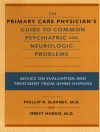Like children themselves, development is dynamic. In the chronologically organized Child and Adolescent Development in Context, award-winning author Tara L. Kuther frames development research in real-life contexts, including gender, race and ethnicity, socioeconomic status, and more. Kuther presents highly relatable examples, vivid cross-cultural stories, and case studies of real individuals, consistently prompting students to reflect on chapter content with What do you think? questions. The book emphasizes three core themes: the centrality of context, the importance of research, and the applied value of developmental science; students will come away with an understanding of these themes that they will immediately be able to apply to their own lives and future careers.
This title is accompanied by a complete teaching and learning package.
- Digital Option / Courseware
SAGE Vantage is an intuitive digital platform that delivers this text’s content and course materials in a learning experience that offers auto-graded assignments and interactive multimedia tools, all carefully designed to ignite student engagement and drive critical thinking. Built with you and your students in mind, it offers simple course set-up and enables students to better prepare for class.
- Assignable Video with Assessment
Assignable video (available with SAGE Vantage) is tied to learning objectives and curated exclusively for this text to bring concepts to life. <
- Assignable Video with Assessment
- LMS Cartridge (formerly known as SAGE Coursepacks): Import this title’s instructor resources into your school’s learning management system (LMS) and save time. Don’t use an LMS? You can still access all of the same online resources for this title via the password-protected Instructor Resource Site.
สารบัญ
List of Boxed Features
Preface
Acknowledgments
About the Author
Unit I: Foundations of Child and Adolescent Development
Chapter 1: Understanding Human Development: Approaches and Theories
Understanding Development
Basic Issues in Developmental Science
Theories of Child Development
Research in Human Development
Chapter 2: Biological and Environmental Foundations of Development
Genetic Foundations of Development
Chromosomal and Genetic Problems
Reproductive Choices
Heredity and Environment
Chapter 3: The Prenatal Period, Birth, and the Newborn
Prenatal Development
Environmental Influences on Prenatal Development
Childbirth
The Newborn
Unit II: Infancy and Toddlerhood
Chapter 4: Physical Development in Infancy and Toddlerhood
Body Growth
Brain Development During Infancy and Toddlerhood
Early Learning Capacities
Sensation and Perception During Infancy and Toddlerhood
Motor Development During Infancy and Toddlerhood
Chapter 5: Cognitive Development in Infancy and Toddlerhood
Piaget’s Cognitive-Developmental Theory
Information Processing Theory
Individual Differences in Cognitive Abilities
Language Development in Infancy and Toddlerhood
Chapter 6: Socioemotional Development in Infancy and Toddlerhood
Psychosocial Development in Infancy and Toddlerhood
Emotional Development in Infancy and Toddlerhood
Temperament in Infancy and Toddlerhood
Attachment in Infancy and Toddlerhood
The Self in Infancy and Toddlerhood
Unit III: Early Childhood
Chapter 7: Physical Development in Early Childhood
Growth and Motor Development
Brain Development
Promoting Health in Early Childhood
Threats to Health and Well-Being
Chapter 8: Cognitive Development in Early Childhood
Cognitive-Developmental and Sociocultural Reasoning in Early Childhood
Information Processing in Early Childhood
Language Development in Early Childhood
Moral Development in Early Childhood
Early Childhood Education
Chapter 9: Socioemotional Development in Early Childhood
Emerging Sense of Self
Emotional Development in Early Childhood
Families
Gender Stereotypes, Gender Differences, and Gender Development
Play and Peer Relationships in Early Childhood
Unit IV: Middle Childhood
Chapter 10: Physical Development in Middle Childhood
Growth and Motor Development
Brain Development
Physical Activity in Middle Childhood
Threats to Health in Middle Childhood
Chapter 11: Cognitive Development in Middle Childhood
Cognitive Development in Middle Childhood
Intelligence
Moral Reasoning in Middle Childhood
Language Development in Middle Childhood
Learning and Schooling in Middle Childhood
Chapter 12: Socioemotional Development in Middle Childhood
Psychosocial Development in Middle Childhood
Gender Development
Peer Relationships in Middle Childhood
Families in Middle Childhood
Unit V: Adolescence
Chapter 13: Physical Development in Adolescence
Puberty
Brain Development in Adolescence
Adolescent Health
Adolescent Sexuality
Chapter 14: Cognitive Development in Adolescence
Cognitive Development
Adolescent Moral Development
Schools and Academic Functioning in Adolescence
Postsecondary Education And Employment
Chapter 15: Socioemotional Development in Adolescence
Psychosocial Development: The Changing Self
Adolescents and Their Parents
Adolescents and Their Peers
Problems in Adolescence
Glossary
References
Name Index
Subject Index
เกี่ยวกับผู้แต่ง
Tara L. Kuther is professor of psychology at Western Connecticut State University where she has taught courses in child, adolescent, and adult development for 30 years. She earned her Ph D in developmental psychology at Fordham University. Dr. Kuther is fellow of the Society for the Teaching of Psychology (APA, Division 2), has served in various capacities in the Society for the Teaching of Psychology and Society for Research on Adolescence, and is the former chair of the Teaching Committee for the Society for Research in Child Development. Her research interests include social cognition and risky activity in adolescence and adulthood. She is the award-winning author of Lifespan Development: Lives in Context, other developmental psychology texts, as well as books to promote student professional development and help them succeed in college and afterward.












